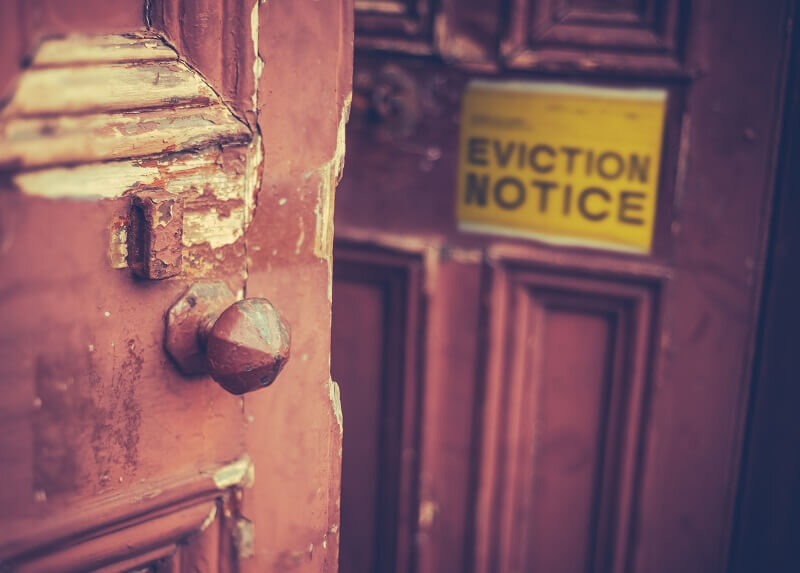
Selling a house is a complex process at the best of times, but when you have the added challenge of squatters residing in your property, it can become a daunting task. From understanding the squatters’ rights and the local laws to navigating the eviction process, homeowners often find themselves entangled in a web of legal labyrinths. This guide intends to demystify these complexities and provide practical, insightful advice on how to attract potential buyers and secure a fair cash offer, even with these uninvited guests.
Whether you’re dealing with a vacant property in Houston or facing an adverse possession situation in Arlington, we’ll help you understand the steps required to sell your house fast and with minimal hassle. From informing law enforcement to hiring a real estate agent or even considering cash home buyers, we’ll explore all the options, ensuring you’re equipped to make the best decisions for your unique situation.
What Are Squatters’ Rights in Texas?
Every state from California to New York has different laws and regulations around squatters’ rights, and Texas is no exception. In general, squatters are people who occupy a property without the legal right to do so. They may have moved into an abandoned or vacant property, or they might be renters whose lease has ended, but they refuse to leave. Squatters’ rights can vary depending on the situation, and it’s crucial to understand what they are in Texas before taking any steps toward selling your house.
Before diving deep into the eviction process, it’s crucial to understand squatters’ rights in Texas. Texas law does recognize a concept known as “adverse possession,” under which a person occupying your property may acquire legal ownership if specific conditions are met. These conditions typically involve a period of time where the squatter has lived on the property openly, continuously, and without the owner’s permission, along with paying property taxes for a certain number of years.
However, it’s important to note that obtaining property through adverse possession is not a quick process. In Texas, the squatter must have occupied the property for a minimum of ten years before they can claim ownership. They must also have made improvements to the property or regularly paid the property taxes during that period.
While these laws may seem alarming to homeowners, remember that you, as the legal owner, have rights too. If a squatter trespasses on your property, you have the legal right to initiate an eviction notice and reclaim your property. Keep in mind that this is a legal process and must be handled correctly and lawfully to ensure a smooth transition and to avoid potential property damage.
Homeowners Rights When Having Squatters in Texas
Homeowners in Texas hold significant legal rights when faced with the predicament of squatters. Firstly, they have the right to issue an eviction notice to the squatter. This is a legal document that officially requests the squatter to vacate the property within a specified period of time. Furthermore, Texas law protects homeowners by allowing them to file a suit for forcible detainer. This is a legal action that seeks a court-ordered removal of the squatter.
In some cases, you as the homeowner may be able to involve law enforcement to remove trespassers from your property, especially if they have been there for less than a certain period of time. This period varies by local laws but is typically around 30 days.
Always remember, that it is crucial to adhere strictly to legal procedures during these situations. Consulting with a real estate attorney can provide much-needed guidance and clarification on your rights and responsibilities, and help you navigate the legal labyrinth involved in reclaiming your property.
Lastly, be aware that the presence of squatters doesn’t make the property unsellable. Real estate investors, particularly those who advertise as “we buy houses Houston, Texas,” often deal with these types of situations and could provide a hassle-free, fair cash offer for your property. Regardless of your set course, understanding your rights as a homeowner is the first step in resolving any squatter situation.
Can You Sell a House with a Squatter in Texas?
Yes, it is entirely possible to sell a house with a squatter present in Texas. While the process may be more complex, there are prospective buyers, including real estate investors and cash home buyers, who are willing and experienced in dealing with such situations. These buyers often offer a fair cash offer and can close the deal quickly, which can be an attractive option for homeowners wanting to dispose of the property quickly without the hassle of legal eviction.
However, it’s important to be transparent about the squatter situation when selling your house. Concealing such information could lead to legal complications down the line. A prospective buyer will need to be aware of, and prepared for, the process of eviction. It’s also worth noting that the presence of a squatter may influence the property’s value.
Involving a real estate agent with experience in these matters can also be beneficial. They can provide advice and assistance throughout the selling process, including negotiations with potential buyers. They are also likely to have contacts in the industry, such as real estate attorneys and investors, which can be invaluable in these situations.
In summary, while selling a house with a squatter in Texas can be challenging, it is not impossible. With the right approach, resources, and advice, homeowners can successfully navigate this complex issue.

How to Get a Squatter Out of Your Home
Getting a squatter out of your property isn’t a walk in the park, but homeowners can successfully navigate this ordeal by following a few critical steps.
Firstly, it’s essential to understand local laws pertaining to squatters and eviction. These laws can be complex, so homeowners might need to consult with a real estate attorney to ensure they’re acting within their legal rights.
Secondly, homeowners should provide a formal eviction notice, which serves as an official request for the squatter to vacate the property. If the squatter fails to comply, homeowners can then proceed with filing an unlawful detainer lawsuit. Remember, any physical confrontation or attempt to forcefully remove the squatter can lead to legal complications. Always involve law enforcement when necessary.
Thirdly, it’s crucial to follow through with the court hearing and any subsequent court order. If the court rules in favor of the property owner, law enforcement can remove the squatter officially. It’s worth noting that during this period, homeowners must continue to pay property taxes and manage any property damage that may occur.
Lastly, homeowners can consider selling their property to real estate investors who make cash offers for houses, even those with squatter issues. These investors handle the eviction process themselves, offering a hassle-free solution to homeowners looking to sell their house fast.
In conclusion, while the process can be stressful, homeowners have options and resources to regain possession of their property.
Squatter Laws in Texas
In the state of Texas, squatter laws are governed by adverse possession statutes, which can be quite complex in nature. A squatter can claim rights to a property after residing there for a certain period of time, typically ten years in Texas, without the owner’s permission. This period can be shortened to five years if the squatter has paid property taxes during that time.
Texas law requires property owners to take swift legal action to remove squatters. Serving an eviction notice is the first step towards reclaiming your property. The eviction process follows the same guidelines as those for ejecting a tenant. If the squatter fails to vacate, it may be necessary to file a lawsuit for eviction.
However, it is crucial to remember that physical force should never be used to remove squatters; instead, court orders and law enforcement should be utilized. The property owner must maintain the property, including paying property taxes, throughout this ordeal.
Notably, Texas law offers strong protections for property owners. A real estate professional or attorney can provide valuable advice and assistance throughout this legal process. Alternatively, homeowners facing squatter issues can opt to sell their property “as-is” to real estate investors who offer fair cash offers, providing a hassle-free solution amidst a complicated situation.
Mistakes Not to Make When Getting a Squatter Removed from Your Home
Avoiding common mistakes when dealing with squatters can save you time, money, and potential property damage. One of the most damaging mistakes homeowners make is taking the law into their own hands by forcibly removing squatters. This approach can lead to legal repercussions, as only law enforcement can physically remove squatters under a court order.
Another common mistake is neglecting to monitor a vacant property. Regular check-ups can help spot unlawful possession early, reducing the risk of squatters establishing legal rights under adverse possession laws. Homeowners often misstep by failing to serve an immediate eviction notice upon discovery of squatters. This notice is critical to start the legal eviction process and reassert your ownership rights.
Furthermore, failing to seek professional help can be detrimental. Engaging a real estate attorney familiar with local laws can help navigate the legal labyrinth associated with squatter eviction. Lastly, not considering a cash offer from a real estate investor is a missed opportunity for a hassle-free solution. Selling your house fast to one of the cash home buyers in Fort Worth, Texas can save you from lengthy court hearings and closing costs related to the legal eviction process.

How to Sell a House With a Squatter
Selling a house with a squatter can be challenging, but it’s certainly doable with the right strategies and professional assistance. Here’s a step-by-step guide on how you can navigate this situation:
Step 1: Consult with a Real Estate Attorney
Start by consulting with a real estate attorney who is adept at local property laws. They can guide you through the legal process of eviction and ensure you’re adhering to all local laws to avoid any legal repercussions.
Step 2: Serve an Eviction Notice
The next step involves serving an official eviction notice to the squatter. Remember, it is the court’s job, not yours, to physically remove the squatter, so avoid any confrontations.
Step 3: File an Unlawful Detainer Lawsuit
If the squatter refuses to vacate after receiving the eviction notice, your attorney will help you file an unlawful detainer lawsuit. This will set a court hearing in motion to legalize the eviction process.
Step 4: Employ a Realtor or Real Estate Investor
In the meantime, engage a realtor experienced in selling properties under such circumstances. An alternative option is a real estate investor who is willing to make a cash offer for your property “as-is”. This can be a hassle-free and quick solution, eliminating the need for property repairs or staging. Additionally, they have experience dealing with squatters and can handle the situation effectively. One such reputable home buyer in Texas is Southern Hills Home Buyers.
Step 5: Market the Property
Hire a professional photographer to take high-quality photos of your property (avoiding areas where the squatter resides, if possible). Market your property to potential buyers emphasizing the home’s features and potential, rather than its current condition.
Step 6: Negotiate with Potential Buyers
Be transparent with potential buyers about the squatter situation. Some buyers might be deterred, but others may see it as an opportunity for a discounted price. Negotiate terms that are favorable to you but also fair to the buyer.
Step 7: Close the Sale
Once a buyer is found and a price is agreed upon, you can proceed to close the sale. Remember, you will need a court order to have the squatter forcibly removed if they are still in the property at this point.
Overall, selling a house with a squatter is a complex process that requires patience, legal knowledge, and negotiation skills. However, with the right approach and professional help, you can successfully sell your property and avoid further hassle.
Conclusion
In conclusion, dealing with squatters while trying to sell your property can certainly be a challenging endeavor. The process involves navigating through legal complexities and often requires a great deal of patience. However, by adhering to local laws, engaging experienced real estate professionals, and remaining transparent with potential buyers, you can transform an intimidating situation into a manageable task. Remember, the key is to maintain your legal rights as a homeowner, effectively market your property, and negotiate a fair deal for all parties involved. And while the journey may be taxing, with the proper guidance and approach, you can successfully sell your property – squatters or not – and move forward with your life. If you need to sell your house but have squatters, we can help! We are reputable home buyers in Arlington and we also buy houses in Fort Worth. Contact us today to learn more about our services and how we can assist you in navigating the squatter situation while selling your property. Don’t let squatters hold you back from moving on – let us help you conquer the chaos and sell your house with ease. So, if you’re ready to take the first step towards selling your house with squatters, contact us today, and let us help you find a solution. With our expertise and experience, we can guide you through the process and ensure a successful sale of your property – no matter the circumstances.
